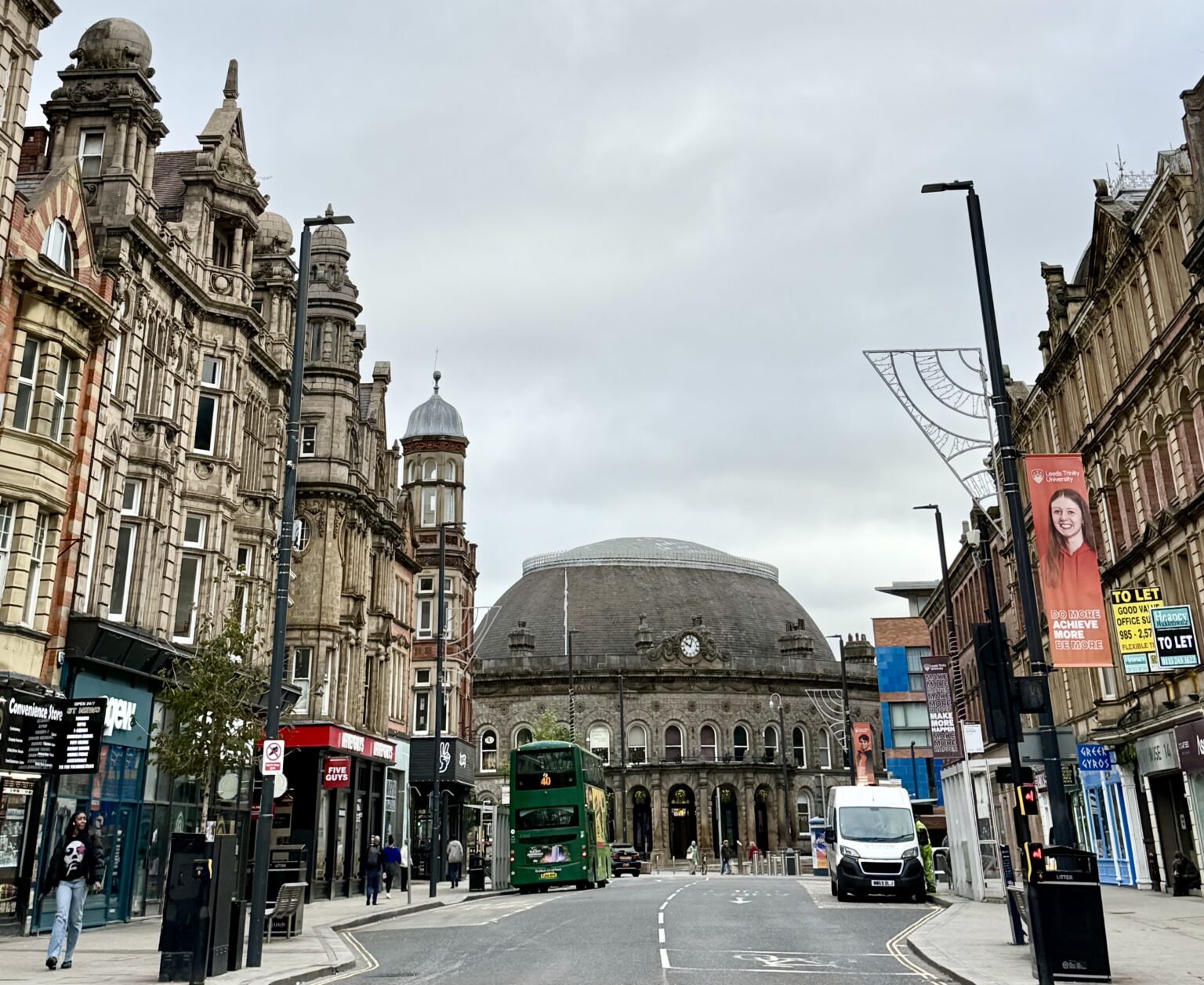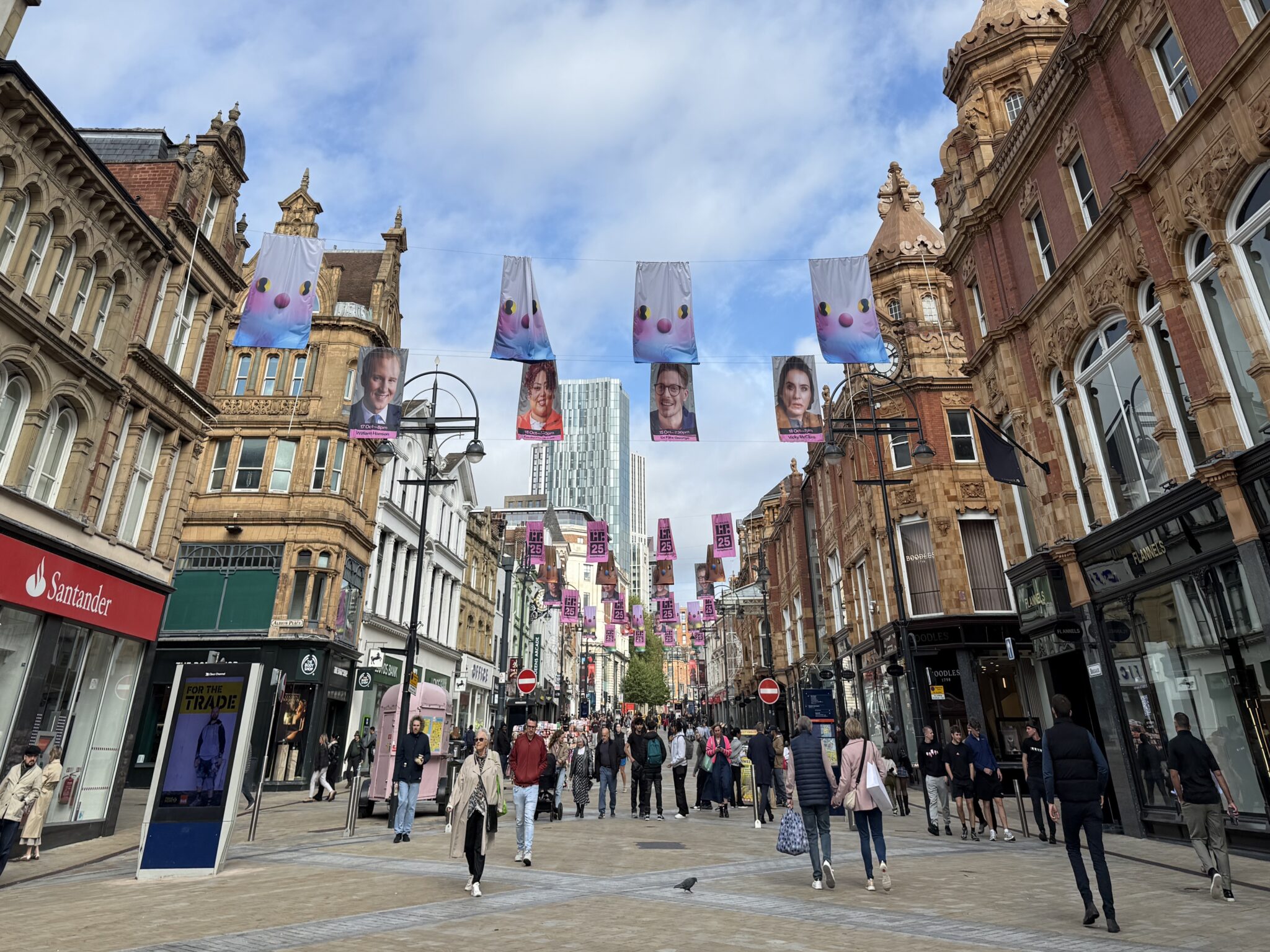Safety and crime remain key challenges for businesses in the UK and were among the key issues Leeds businesses requested our support on when we consulted on our strategic objectives for the next five years. [1]
This dialogue is no stranger to those engaged in business improvement districts, or place management, particularly in large urban areas, but there has been a shift over recent years, particularly post Covid, in how much impact this is having on our high street.
This is a complex area of debate, and many factors play into this picture, including a shift in people’s behaviours post Covid, a rise in theft (retail theft is well documented by the media), an overloaded Criminal Justice System, in recent years a national move to reactive from proactive policing, shrinking support in addiction and mental health services, a lack of tools to address local, prolific offending, a lack of reporting by businesses, and short term statutory funding availability. No one organisation can solve this alone.
Six months ago, LeedsBID was asked to run the day-to-day operation of the city’s business crime reduction partnership (BCRP), following the merger of BACIL (Business Against Crime In Leeds) and LeedsBID. I gained a new partner in crime – Tris Margison – and he and I continue to lead the review and redevelopment of a long established, business crime reduction partnership which can meet the needs of Leeds, both now and into the future. Oh, and of course, make sure the partnership (one of the largest in the UK with over 400 members) continues to operate daily.
During that time, we have engaged locally with our businesses (and managed to see all but a few faces), opened a monthly drop-in session and replaced many batteries. BIDs are well placed to run BCRPs, with strong relationships locally with businesses already and a focus on place improvement.
We have also commissioned independent research on the BCRP, including the perception of safety for those working in the city. The responses are powerful, with some businesses feeling ‘abandoned’ and unheard and frequent accounts of employees feeling unsafe in their place of work, as well as when moving about the city centre. This is not sector specific. Businesses are challenged, as a result, by difficulties recruiting staff, supporting existing staff through personal trauma, and needing to employ private security during all hours of the day. The research has driven positive, strategic engagement locally, with businesses, but also with the police and local authority. Improvements are ongoing, with positive changes to the intelligence system and comms, and there’s much, much more to come. If you’re a member, make sure you engage and keep informed and in touch at enquiries@bacil.co.uk / Disc – Business Against Crime in Leeds; a BCRP cannot be effective without active participation and partnership.
None of this is Leeds specific; I hear similar conversations professionally with others places across the UK regularly, and via industry organisations, the ATCM (and BID Foundation), NABCP and UK High Streets. During the last six months we have sought out best practice across equipment and intelligence systems, have been hosted by the best local BCRPs across the north who have generously shared their expertise and brilliance (thank you to you!), and engaged nationally with government and our peer BID cities.
Concerns about safety on our high streets has become all too common and sadly familiar. As organisations working in place shaping and place management, we must recognise that no one organisation can solve these problems, but by working collaboratively, and consistently, in a local and national context, these issues become unusual not the norm.
Karen Butler, Director of Place, Engagement and Safety, LeedsBID
[1] NGI LeedsBID Levy Payer Perception Survey 2024 / LeedsBID Chapter 3 Business Plan, 2025-2030







